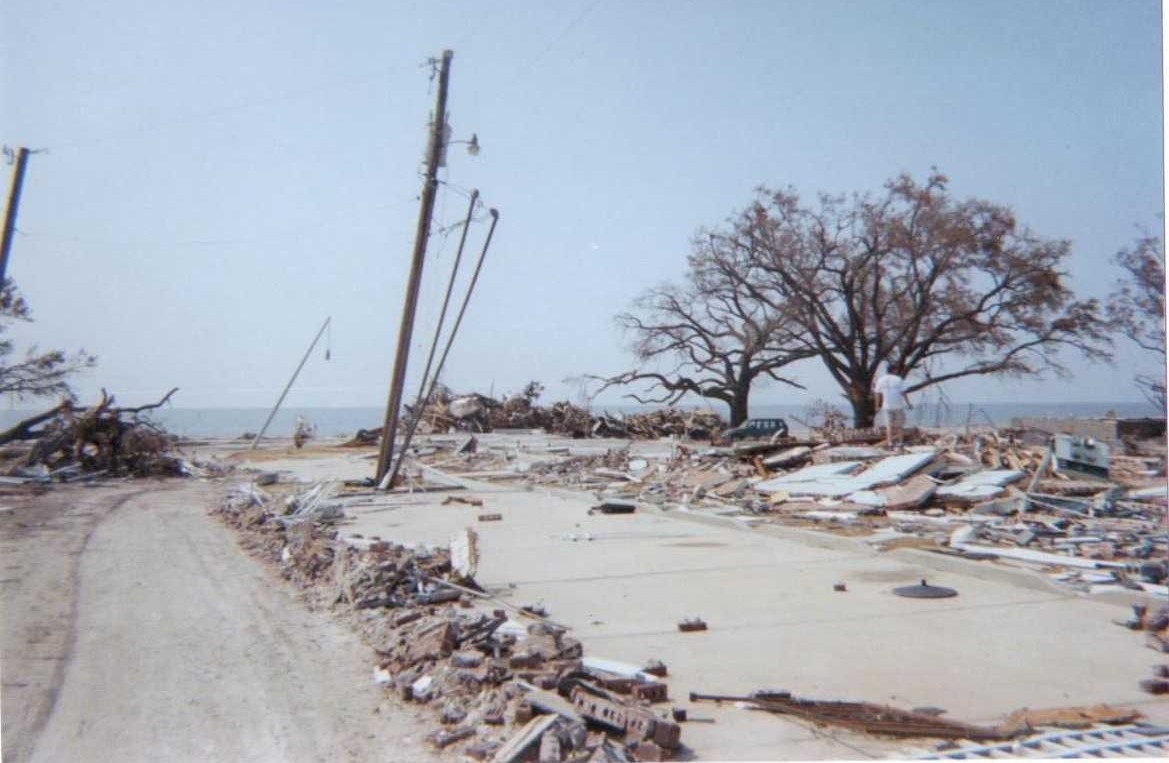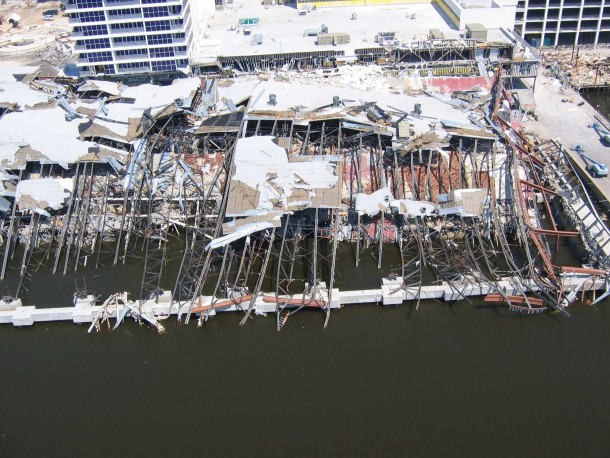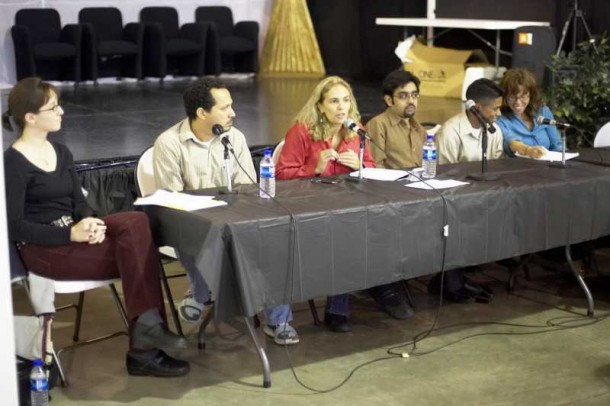How Katrina made me fight for the rights of my community
 Site of a two-story apartment complex, completely wiped out by the storm. Friends of the author used to live there. “This is all we found when we returned.” Photo by Rosa Herrin/Oxfam America
Site of a two-story apartment complex, completely wiped out by the storm. Friends of the author used to live there. “This is all we found when we returned.” Photo by Rosa Herrin/Oxfam America
After surviving Katrina’s high winds and floods, a recent immigrant finds within her a determination to defend the rights of workers rebuilding the Gulf Coast.
by Rosa Herrin, the Gulf Coast policy officer for Oxfam America, in Biloxi, Mississippi
I remember returning to Biloxi two weeks after Katrina hit the city: It looked like a bomb had exploded, and it smelled like death. The military was camped in the Coliseum in Biloxi, and the curfew fell every day at around 8pm.
Everyone who was still around was desperate for information and resources. But many Latinos were afraid to approach emergency relief sites. They were worried they’d be turned away, unjustly reported to authorities, and/or deported. Even when they did find help, there was rarely anyone who spoke Spanish or understood the specific needs of my community.
Before Katrina, Latinos were almost invisible to the rest of the community. But this disaster not only put us in the center of the public eye, it made us stronger as a community of immigrants, with a shared struggle for dignity and respect of our human rights.
More than an ID
I originally came from Peru to work at a hotel in Biloxi, through a special visa for college students. It turned out to be essentially a program for bringing in a cheap labor force. Soon after arriving I realized it was a scam and I found my way out and into other jobs, and eventually to college.
I must admit that before coming to this country, I never identified as Latina, but as a Limeña (from Lima, Perú). I became a Latina when I immigrated to the United States. Katrina helped me understand that being a Latina is more than a cultural identification or a box that I must check for demographic purposes, it is about solidarity in the struggle for justice and dignity. I now embrace my new identity and I am committed to fight for the rights of my community.

There weren’t many Latinos in Biloxi before Katrina hit, and it felt like we all knew each other. There were hardly any resources that served the Spanish-speaking population. When the hurricane was brewing, many Latinos simply had no idea how serious it was going to be. Many stayed put because they did not know the severity of the upcoming storm and/or did not have the resources to evacuate.
Right after the hurricane, there was an influx of immigrant population looking for work in construction and debris removal. A lot of them ended up settling in the Gulf Coast region looking for better opportunities for their families. Many of the newcomers were terribly abused by the contractors who came in to do the clean-up. They often weren’t paid the full wages they’d earned, they weren’t provided with housing they’d been promised (and there was nowhere to live, really), and they often worked days on end in damaged buildings full of toxic materials.
I never thought people could be so insensitive and cruel, but there were many cases of contractors refusing to pay workers for work already done. They threatened the workers with deportation if they demanded to be paid, as if their lives were worth nothing. Though I always knew I was going to work on advancing social justice, I think I became an immigrants’ rights advocate out of necessity, after witnessing the blatant abuses and discrimination that my new community was suffering.
In mid-2006, I started an internship with the Mississippi Immigrants Rights Alliance (MIRA). At the time, most of the work was centered on recovering stolen wages and reporting labor violations. I remember MIRA ended up collecting over $1 million in stolen wages.
A few years later, I worked for another organization serving Latino immigrants on the Mississippi Gulf Coast, called El Pueblo, which offers English classes, immigrant legal services, family literacy, among other direct services.
Oxfam helped strengthen and start organizations that were serving these folks, including MIRA and El Pueblo. Before Katrina, I believe only the Catholic Social Services and some churches would provide assistance to Latinos, regardless of their income and immigration status.
More visible, still vulnerable
Today, Latinos are more visible in Biloxi. After the clean-up, they stayed on to work service jobs in the casinos and hotels. The women, especially, are concentrated in these low-wage jobs. Both New Orleans and Biloxi had a dramatic increase in Latino population.

But they’re still vulnerable in the face of disaster. A lot of them are living in trailer parks and apartment complexes; if another hurricane comes, they’ll be hit the hardest and once again, and might not benefit from the recovery dollars.
Undocumented immigrants are nervous about their status, so they won’t always come forward when there’s an injustice. They’re afraid to speak out. MIRA and El Pueblo still work hard to inform them of their rights, defend them against injustices, and advocate for their inclusion.
Today, in New Orleans, through the Louisiana Language Access Coalition, we are working to ensure we have interpreters who head to emergency sites; and to make sure immigrants know that they qualify for basic emergency services, whether they have documentation or not. But in Biloxi we still need language access policies and procedures at public agencies, and dissemination of culturally and linguistically appropriate disaster recovery information.
I think advocates and organizers need to understand that as vulnerable as this community may be, Latino immigrants are already very resilient; we have great strength to be making it in another country given all the obstacles we face. We need to recognize our strength and build community power from this perspective. As the Latino population continues to increase and settle in this region, we need to keep reaching out to Latinos -and those who stand in solidarity with this community- to engage them in active work to change the systems that perpetuate injustice.
Injustice hurts all of us. It will take all of us to create a more just world.